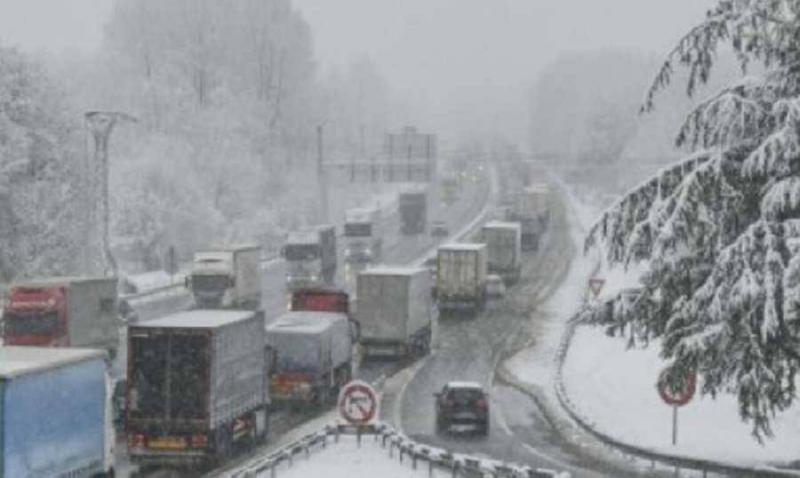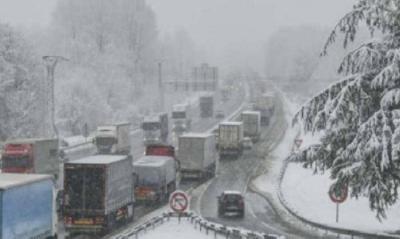Europe is racing against time to diversify its supplies and fill its tanks before winter arrives, avoiding a shortage that is expected to worsen with increased demand, especially as natural gas prices in Europe approach all-time highs. The reduction of Russian natural gas supplies has compelled European facilities to use reserves usually designated for peak winter season consumption. Data from the "European Gas Infrastructure Association" showed this week a decline in storage levels for the first time since mid-April, the time when traders typically start filling facilities, marking one of the latest signs of how the energy crisis in the region is escalating.
Amid the ineffectiveness of European leaders' solutions to the energy crisis complicated by Western sanctions, fears of a "catastrophic winter" are growing across the continent, potentially leading to increased social movements that could negatively impact governments' stances on the war in Ukraine.
The repercussions of the Ukraine war are reflected in Western governments, from Italy to Germany, passing through France and Hungary, reaching Poland and Slovenia. The results of elections have brought about changes too significant for the policies and orientations of the leaders to contain, as the French president lost the parliamentary majority, while the Conservative Party in the UK suffered two crushing defeats in by-elections.
EU countries consume about 40 percent of their oil and its derivatives imports from Russia, amounting to approximately 6.5 million barrels of crude oil and diesel fuel per day.
In this context, Amed Shukri, Senior Adviser for Foreign Policy and Energy Security at the Gulf Analysis Center (based in Washington), stated: "A full winter storm may be brewing in Europe as the countries of the continent seek to reduce Russian gas supplies. The energy crisis, which began in the fall of 2021 and has heavily pressured citizens in European countries, has reached its peak, and this unstable situation may continue until winter 2022." Shukri added to "Sky News Arabia": "Russia has been the largest supplier of natural gas to the EU for decades, benefiting both sides from each other's needs. However, gas disputes between Russia, Ukraine, and Europe have escalated at times. Tensions erupted in 2006 and 2009, then again in 2013 and 2014, creating problems for the green continent in providing energy to its citizens and industries."
He continued: "For various reasons, European countries have always sought to reduce their dependence on natural gas imports from Russia, but this goal has been very challenging to achieve, and Russia still provides about 40% of gas consumption in the EU." He stated, "Europe's reliance on gas supplies from outside the continent (both Russia and the United States) represents a major vulnerability for them. But they have only two options to meet their energy needs: either through pipelines, which are cheaper but in the hands of exporters, or by purchasing liquefied natural gas cargoes via ships, providing Europe with increasingly diverse resources for sourcing gas, but at a higher cost."
He pointed out that "most European countries in recent years have tried to reduce their dependence on Russian gas. However, the Ukraine war could unintentionally lead to cutting off Russian gas supplies. A potential energy ban could be on the agenda as retaliation against Western sanctions, or the conflict in Ukraine may damage supply routes through which 52 billion cubic meters of gas reach Europe annually via Ukraine or neighboring routes." He noted that "despite the increasing demand prompting new liquefied natural gas projects worldwide over the past decade, the construction timelines suggest that before 2024, it is unlikely these projects will help provide the required gas."
From his side, Czech-Canadian analyst specializing in international affairs, Mitchell Belfer, commented that for the most part of the West, the UK and EU have decided to take the economic hit to defend the rules-based system they helped design in post-Cold War Europe. Belfer, who is a director at a research center in Rome, told "Sky News Arabia": "If anything, Europeans are showing that they are somewhat resilient and capable of making decisions that could set them back in other important areas such as environmental protection and reducing dependence on dirty energy supplies like coal. Germany's announcement that it will start using coal again is a good example of this."
He continued: "Things might change by winter, but as it stands now, and as long as the US continues to take the lead, I highly doubt there will be any retreat. However, in France, both the far-left and far-right, both of which made significant gains in the recent parliamentary elections, will exploit the economic difficulties citizens are facing for gains. They may feel incentivized to pressure Macron into making concessions to Russia, but doing so would isolate them from their sister parties across Europe and from voters in France. The perspective on Russia's war against Ukraine continues to be viewed negatively across the political spectrum." He pointed out, "In the mad rush to secure alternative energy supplies, considering that the US has pledged to help Europe meet its energy needs, alongside a variety of other initiatives, this means that temperature will not determine the end of the war."




